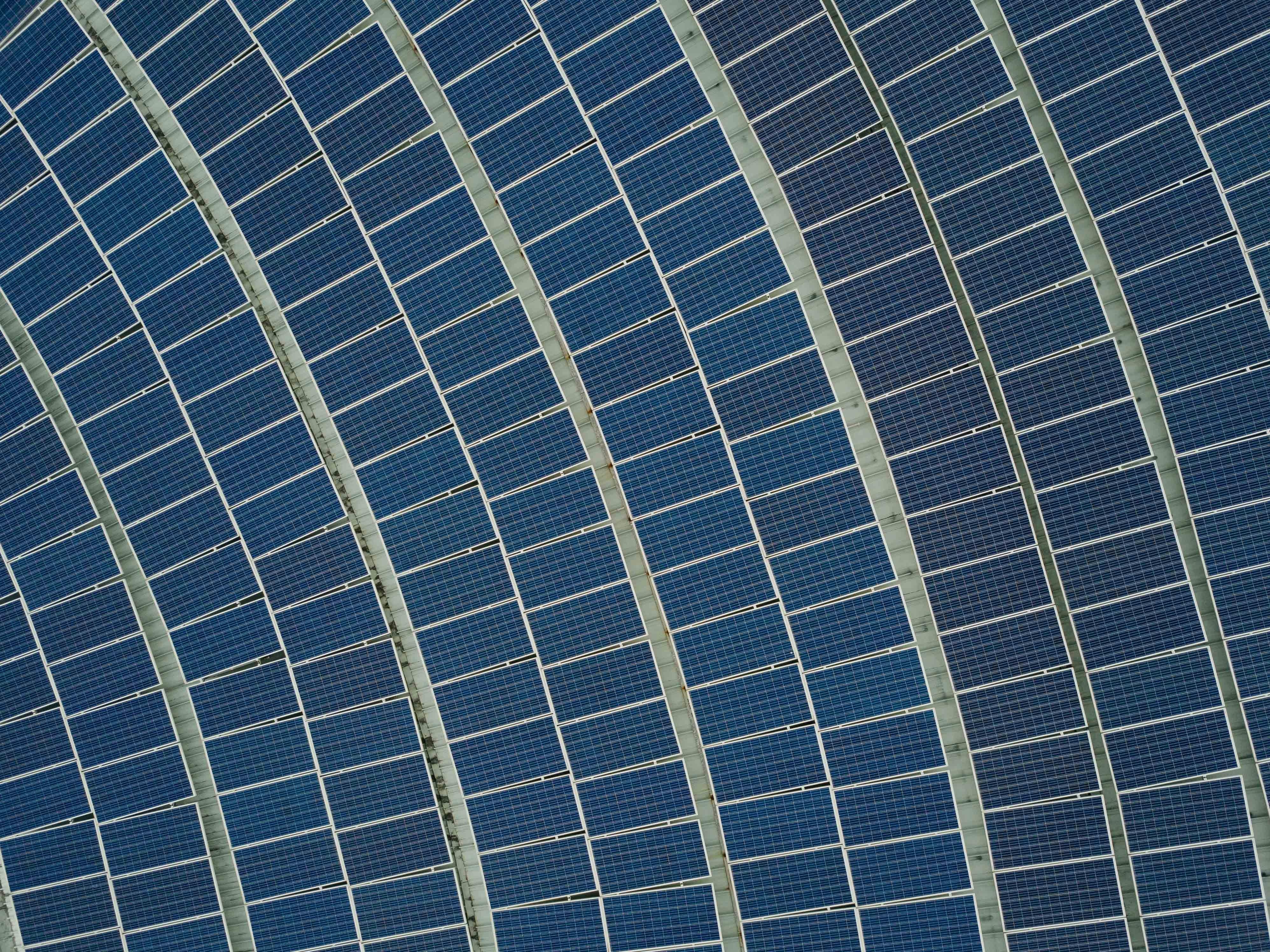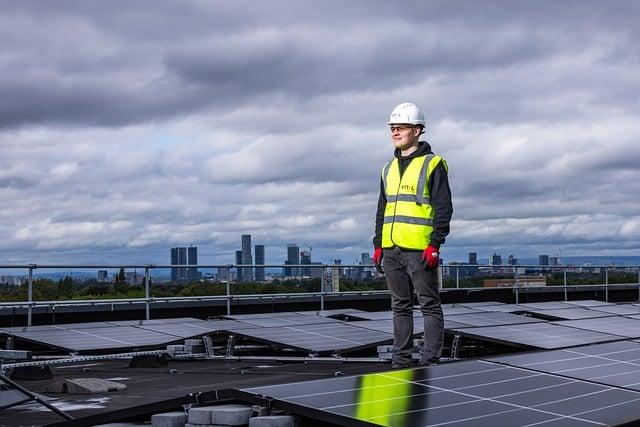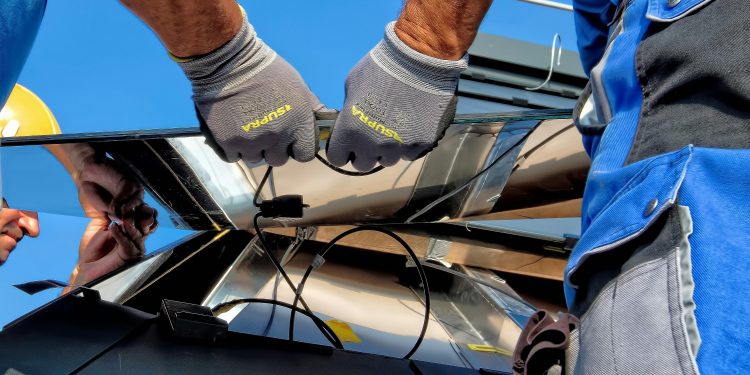In an era where the sun is hailed as both a source of energy and a beacon of hope for a sustainable future, the solar industry stands at a critical crossroads. With the potential to revolutionize how we power our world, solar technology promises cleaner skies and a departure from fossil fuels. Yet, despite its promise, the industry is not immune to the tumultuous waves of economic uncertainty. As some solar companies teeter on the brink of collapse, a pivotal question emerges: should governments intervene to save these faltering beacons of green energy? This article delves into the complexities of this question, examining the delicate balance between fostering innovation and ensuring fiscal responsibility, as well as the broader implications for our planet’s future.
Evaluating the Economic Impact of Solar Company Bailouts
The financial lifeline extended to solar companies on the brink of collapse is a subject of intense debate. Assessing the economic repercussions of such bailouts requires a multifaceted approach. On one hand, government intervention could prevent the loss of jobs, sustain local economies, and encourage the transition to renewable energy. On the other hand, the cost to taxpayers and the potential for moral hazard — where companies might engage in risky practices, believing they’ll be rescued — present significant concerns.
- Job Preservation: Bailouts could safeguard thousands of jobs in the solar industry, from manufacturing to installation.
- Market Stability: Government support might stabilize the market, maintaining investor confidence in the renewable sector.
- Innovation Stagnation: Critics argue that bailouts may stifle innovation by allowing inefficient companies to survive.
- Fiscal Responsibility: The financial burden on taxpayers cannot be ignored, as funds could be diverted from other crucial areas.
Ultimately, the decision to bail out failing solar companies hinges on weighing immediate economic benefits against long-term market health and sustainability. Policymakers must carefully consider whether such interventions serve the broader public interest or merely delay inevitable market corrections.

Balancing Environmental Goals with Financial Prudence
As governments navigate the complex terrain of renewable energy initiatives, the question of whether to financially rescue failing solar companies becomes a critical issue. On one hand, investing in solar energy is a strategic move towards a sustainable future, aligning with environmental goals and reducing carbon footprints. On the other hand, the economic burden of supporting companies that struggle to remain viable in a competitive market raises concerns about fiscal responsibility.
Key Considerations Include:
- Job Preservation: Bailing out solar companies could protect jobs and support local economies, preventing a ripple effect of unemployment.
- Innovation vs. Inefficiency: While innovation in solar technology is crucial, continuous financial support for inefficient operations may hinder overall progress.
- Market Dynamics: Government intervention might disrupt market dynamics, possibly deterring private investment in the sector.

Exploring Alternatives to Direct Government Intervention
When contemplating the fate of struggling solar companies, it is crucial to consider a spectrum of solutions that transcend direct financial aid from governments. Market-driven strategies can serve as potent alternatives, fostering innovation and resilience within the industry. By encouraging competitive practices, solar companies can be incentivized to improve efficiency and reduce costs, ultimately benefiting the consumer and the environment. Moreover, enhancing public-private partnerships can create synergies that leverage both governmental support and private sector agility, enabling solar enterprises to flourish without the need for traditional bailouts.
- Incentivizing Research and Development: Governments can provide tax credits or grants for solar companies investing in innovative technologies.
- Facilitating Access to Capital: Creating low-interest loan programs or establishing green banks can help companies secure necessary funding.
- Promoting Regulatory Reforms: Simplifying regulatory processes can reduce operational burdens, allowing solar companies to focus on growth and sustainability.
By focusing on these alternative approaches, governments can nurture a robust solar sector that stands on its own merits, while simultaneously ensuring the industry’s alignment with broader environmental and economic goals.

Crafting Policies for a Sustainable Solar Industry Future
In navigating the complexities of the renewable energy landscape, it’s essential to develop policies that not only support the growth of solar companies but also ensure their long-term viability. When considering government intervention in the form of bailouts, it is crucial to weigh the broader implications on innovation and market dynamics. Government assistance could serve as a lifeline for companies struggling with financial instability due to external factors like volatile market conditions or unexpected regulatory changes. However, such interventions should be strategic and conditional, ensuring they do not stifle competition or innovation.
To foster a sustainable solar industry, policymakers might consider the following approaches:
- Incentivizing Research and Development: Encouraging technological advancements through grants and tax incentives can enhance the competitiveness of solar firms.
- Creating Robust Regulatory Frameworks: Establishing clear and stable regulations can provide the predictability companies need to make long-term investments.
- Promoting Collaboration: Facilitating partnerships between the private sector, academia, and government agencies can drive innovation and efficiency.
- Focusing on Skill Development: Investing in workforce training can ensure that the industry has access to skilled professionals capable of advancing solar technologies.
By implementing these strategies, governments can create a resilient solar sector that thrives without the need for frequent bailouts, fostering a future where clean energy is both sustainable and economically viable.
In Retrospect
In the ever-evolving dance between innovation and market forces, the question of whether governments should step in to rescue failing solar companies remains a compelling debate. As the sun sets on our exploration of this issue, it becomes clear that the answer is not simply black or white, but rather a spectrum of nuanced considerations. Balancing the promise of sustainable energy with fiscal responsibility requires careful deliberation and strategic foresight.
the decision to bail out these companies is more than a mere financial calculation; it is a reflection of our collective commitment to a greener future. Whether governments choose to intervene or let the market take its course, the dialogue surrounding this issue underscores the importance of fostering resilience and innovation within the renewable energy sector. As we continue to navigate the complexities of the modern energy landscape, one thing is certain: the conversation about our solar future is far from over. Let us remain engaged, informed, and open to the possibilities that lie ahead, as we collectively strive for a brighter tomorrow.


































